My Turn: Imperfect miracles
| Published: 08-10-2023 2:05 PM |
Our world is coming apart. It is too much for us. Evolution didn’t prepare us to confront profound climate catastrophe, to bear gracefully, or otherwise, the ravages and depression of very old age, or to often live apart from family or a tribal group with whom we share the same values. As primates we thrive in close knit and safe communities.
Things have changed too fast for us. Grotesque population growth. Global devastation of habitats and landscapes. An enormous and growing division between the few who control the majority of the Earth’s resources and the several billion who are struggling with starvation and homelessness. The stress of increasing violence among Americans in the fight to dominate our politics. Vicious misogyny worldwide. Unrelenting racism.
We must never condemn ourselves for feeling sadness, despair, rage, fear or the gnawing anxieties that accompany our plight. We are vulnerable. We are frail. Resilient? Yes, that too, but none of us can avoid the negative impact on our psyches and bodies from what is happening now.
Though it is true that the reasoning parts of our brains are more complex than other animals (as far as we know), the emotional parts are far older and still control our minds in both extreme and in everyday situations. No one can reason their way out of a fear of drowning or burning or being continually bombed. Or of being criminalized for aborting an embryo conceived by rape.
The amygdala, the brain’s small organ that alerts us to danger, real or imagined, is also, remarkably, the source of our capacity for empathy. Fear can elicit aggression, now considered an intrinsic part of the human genome by neuroscientists, or it can elicit empathy. We have little say as to which will override the other in any circumstance. Our responses are, in the end, as unpredictable as the universal flux of elemental particles.
Each of us is a unique but transient arrangement of atoms that is never stable, never in permanent equilibrium. We can seldom fathom why what happens to us occurs or what motivates our moods or actions. We can never be sure of what will happen around us. Indeed, scientists are now stunned at the speed of the climate’s change. I would like to say it is Earth’s revenge for our ignorance and callous behavior, but that would only be my personal attempt to mythologize events to make them more understandable, more palatable.
Humans have always concocted ways to understand and ease the travails of life. A religion or world view, of any variety, is a powerful antidote to despair. With nothing to offset the utter meaninglessness of an indifferent material universe, human beings flounder and are lost. Our imagination is the chance gift of evolution that we use to encourage the better parts of our nature. To counter the unknowns.
We begin forming our sense of reality unknowingly, unconsciously, as children. Since I lived with a doc in a mill town and a mother devoted to Emerson, my viewpoint hinged on what I perceived or misperceived there and then. As adults we preserve, reject, or nuance our early impressions. Today I focus on keeping my perspective as wide as I can. I am a speck in an unknowable vastness. We are not the acme of evolution and may, in fact, be one of the shorter lived species. At the same time I try to empathize with other sentient creatures and enjoy the beauty of the natural world yet extant. I honor the goodness of the human heart and human creativity, whether it be Mozart’s music or the gentle wisdom of a neighbor. And though I ponder what flaws in our natures drove us, the only animal I know of, to destroy its own magnificent habitat, I also marvel at the design and dexterity of the human hand and the exquisite intricacy of our brains. I will return my elements to the universe when I die, bearing in mind Willa Cather’s words, “… that is happiness, to be dissolved into something complete and great.”
Article continues after...
Yesterday's Most Read Articles
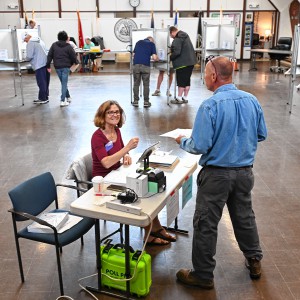 Political newcomer defeats Shores Ness for Deerfield Selectboard seat
Political newcomer defeats Shores Ness for Deerfield Selectboard seat
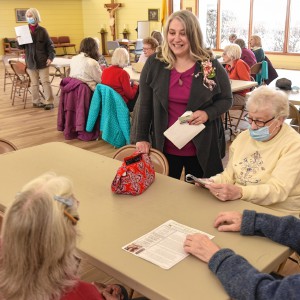 South County Senior Center opts not to renew church lease after rift over LGBTQ program
South County Senior Center opts not to renew church lease after rift over LGBTQ program
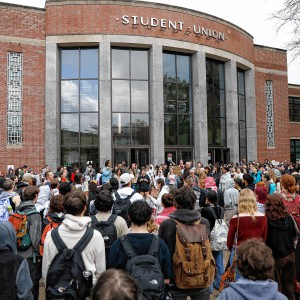 More than 130 arrested at pro-Palestinian protest at UMass
More than 130 arrested at pro-Palestinian protest at UMass
 As I See It: Between Israel and Palestine: Which side should we be on, and why?
As I See It: Between Israel and Palestine: Which side should we be on, and why?
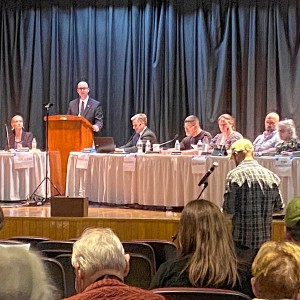 Moratoriums on large-scale solar, battery storage passed in Northfield
Moratoriums on large-scale solar, battery storage passed in Northfield
 Bridge of Flowers in Shelburne Falls to open on plant sale day, May 11
Bridge of Flowers in Shelburne Falls to open on plant sale day, May 11
In 1920, Sigmund Freud, having witnessed World War I and having lost a beloved daughter to the Spanish flu, wrote, “The undisguised brutality of our time is weighing heavily upon us.” What man or woman throughout history could not have expressed that same feeling in their own time? As a result of pure chance, we became imperfect miracles, constrained to contend with reality within the parameters of our enormous gifts and our tragic limitations.
Margot Fleck lives in Northfield.

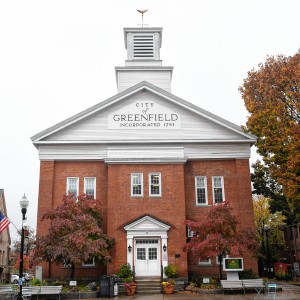 My Turn: Stop taking all equity in home seizures now
My Turn: Stop taking all equity in home seizures now Bill and Jean Gran: Heath Select Board needs Mike Smith’s broad experience
Bill and Jean Gran: Heath Select Board needs Mike Smith’s broad experience Robert McGahan: Will Emmet selflessly gives time and energy to town
Robert McGahan: Will Emmet selflessly gives time and energy to town Pam Roberts: Come join Buddy Baseball's new season on May 11!
Pam Roberts: Come join Buddy Baseball's new season on May 11!
